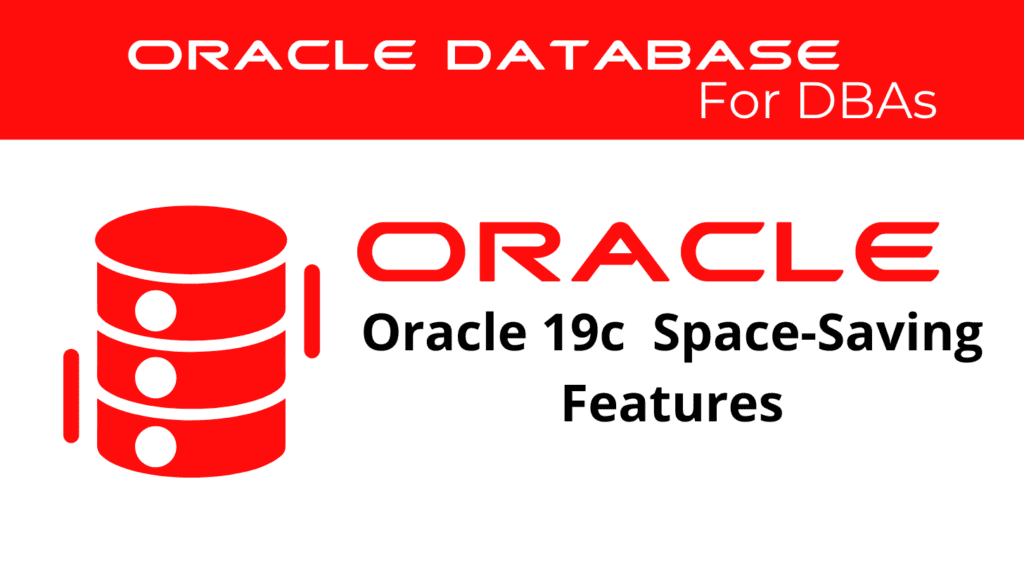
In Oracle 19c, utilizing space-saving features is crucial for maintaining efficient database operations and Optimization. These techniques not only help in optimizing storage usage but also enhance overall database performance. This guide will explore various space-saving techniques and their impact on database efficiency.
Space-Saving Techniques
Implementing space-saving techniques can significantly improve storage efficiency and database optimization.
Key Features of Space-Saving Techniques
- Compression: Reduces the amount of storage needed for database objects.
- Deduplication: Eliminates duplicate data to save space.
- Partitioning: Organizes data into smaller, manageable pieces.
📢 You might also like: Oracle 19c Deploying Oracle Database Space Management Features (Category: Oracle Database Admin)
Compression
Compression is a vital space-saving feature that minimizes the storage footprint of database objects.
Enable Compression
To enable compression on a table:
ALTER TABLE table_name COMPRESS FOR OLTP;
Benefits of Compression
- Reduced Storage Requirements: Saves disk space by compressing data.
- Improved Performance: Enhances query performance by reducing I/O operations.
Deduplication
Deduplication removes redundant data, freeing up valuable storage space.
Perform Deduplication
Use the following query to identify and remove duplicate rows:
DELETE FROM table_name
WHERE rowid NOT IN (
SELECT MIN(rowid)
FROM table_name
GROUP BY column1, column2, ...);
Benefits of Deduplication
- Storage Efficiency: Reclaims space by removing duplicates.
- Data Integrity: Ensures that each piece of data is unique.
Partitioning
Partitioning divides large tables into smaller, more manageable segments.
Create Partitioned Table
To create a partitioned table:
CREATE TABLE table_name (
column1 datatype,
column2 datatype,
...
)
PARTITION BY RANGE (column1) (
PARTITION part1 VALUES LESS THAN (value1),
PARTITION part2 VALUES LESS THAN (value2),
...
);
Benefits of Partitioning
- Improved Query Performance: Queries run faster on smaller partitions.
- Easier Maintenance: Simplifies backup and recovery operations.
Space-Saving Features – Database Efficiency
Enhancing database efficiency is crucial for maintaining optimal performance and resource utilization.
Key Features of Database Optimization
- Efficient Indexing: Improves query performance by reducing the amount of data scanned.
- Proper Storage Management: Ensures that database storage is used efficiently.
- Regular Maintenance: Keeps the database running smoothly through regular tasks like backups and updates.
Efficient Indexing
Creating and maintaining efficient indexes is key to database optimization.
Create Index
To create an index on a table:
CREATE INDEX index_name ON table_name (column1, column2);
Benefits of Efficient Indexing
- Faster Queries: Reduces the time taken to retrieve data.
- Reduced I/O Operations: Minimizes the amount of data scanned during queries.
Space-Saving Features – Proper Storage Management
Managing storage effectively ensures that space is utilized optimally.
Monitor Storage Usage
Use the following query to monitor storage usage:
SELECT tablespace_name, used_space, free_space
FROM dba_tablespace_usage_metrics;
Benefits of Proper Storage Management
- Cost Savings: Reduces the need for additional storage purchases.
- Optimal Performance: Ensures that the database performs efficiently.
Regular Maintenance
Performing regular maintenance tasks keeps the database in good health.
Backup Database
To perform a backup:
RMAN> BACKUP DATABASE;
Benefits of Regular Maintenance
- Data Safety: Protects data against loss.
- System Reliability: Ensures that the database remains stable and reliable.
Conclusion
Using space-saving features in Oracle 19c is essential for optimizing storage and enhancing database performance. By implementing techniques like compression, deduplication, and partitioning, along with proper indexing and storage management, database administrators can ensure efficient and cost-effective operations. Regular maintenance further contributes to a robust and reliable database environment.
See more on Oracle’s website!
Be Oracle Database Certified Professional, this world is full of opportunities for qualified DBAs!





